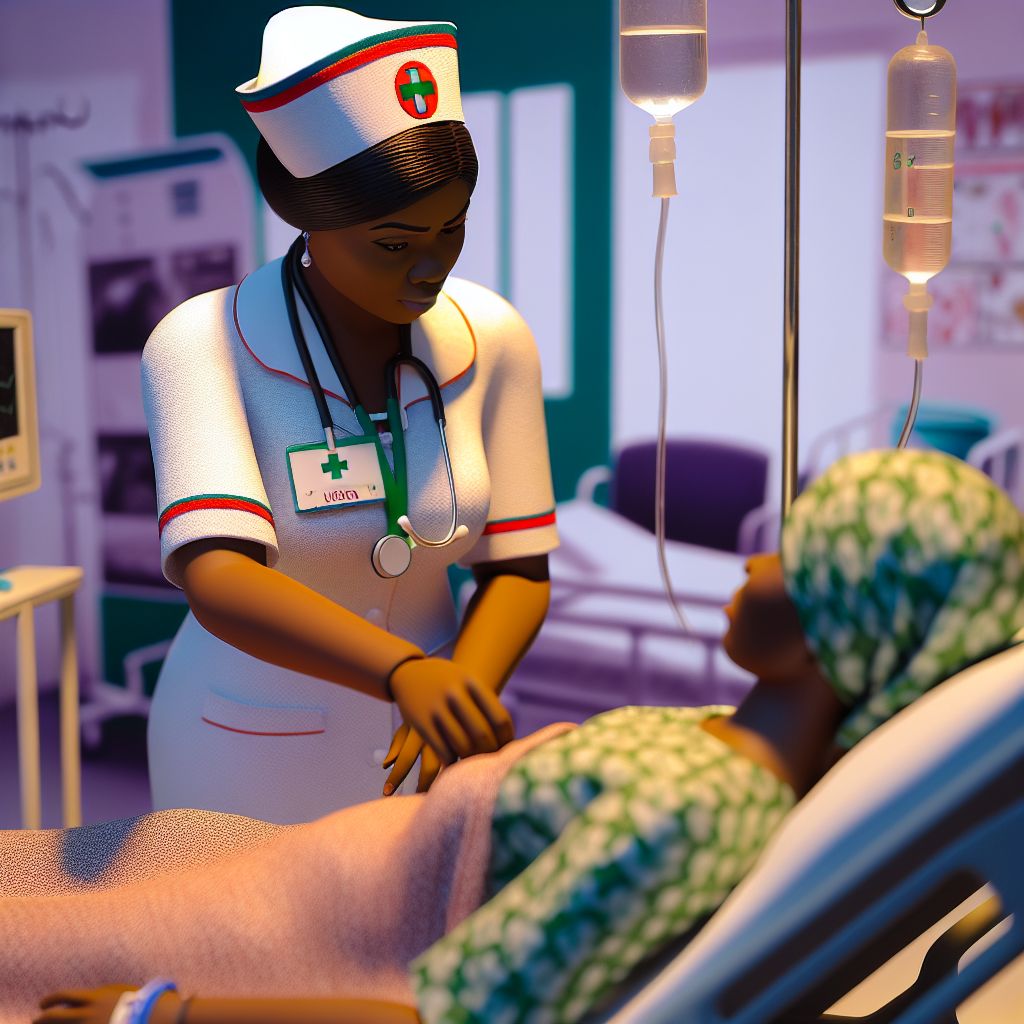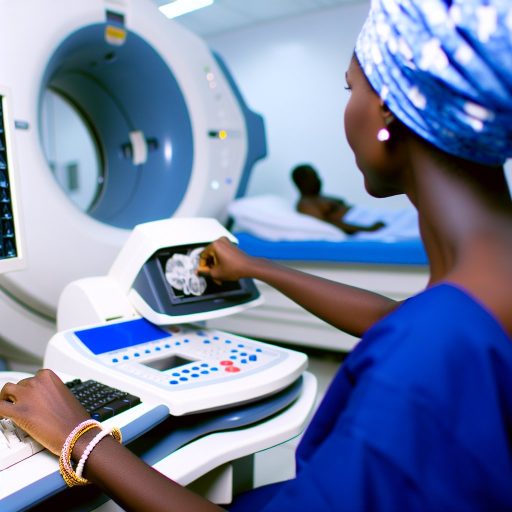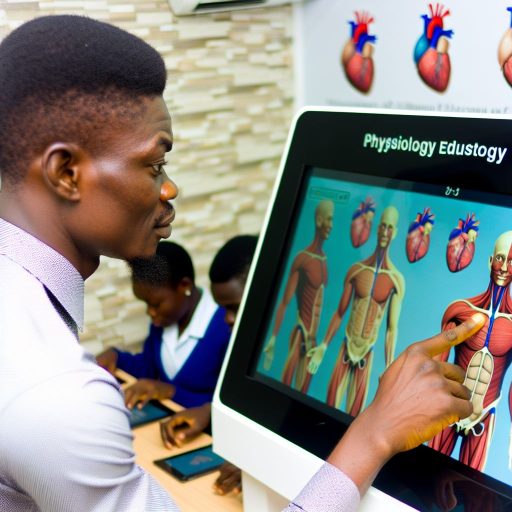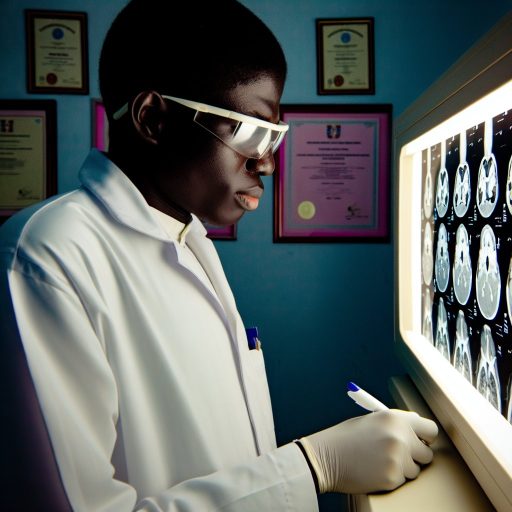Introduction:
When discussing nursing and nursing science, it is important to understand the distinction between the two fields.
Nursing involves the practical application of caring for patients, while nursing science focuses on research and evidence-based practice.
Understanding the key differences between nursing and nursing science is crucial for nurses and healthcare professionals to provide quality care based on current research and scientific evidence.
This knowledge enables professionals to incorporate the latest advances in healthcare into their practice and improve patient outcomes.
Definition of Nursing:
Nursing is the profession focused on caring for individuals, families, and communities to promote health and well-being.
Nurses play a crucial role in healthcare settings, serving as frontline caregivers and advocates for patients.
The primary focus of nursing is to provide holistic care, addressing physical, emotional, social, and spiritual needs of patients.
Role of Nurses in Healthcare Settings:
- Nurses are responsible for delivering direct patient care, including administering medications, monitoring vital signs, and assisting with personal hygiene.
- Nurses collaborate with other healthcare professionals to develop and implement care plans tailored to meet the individual needs of patients.
- Nurses advocate for patients, ensuring their voices are heard and their rights are respected in the healthcare system.
Responsibilities of Nurses in Patient Care:
- Nurses assess patients’ overall health status, gathering information on symptoms, medical history, and current medications.
- Nurses develop and implement care plans, outlining interventions to address patients’ health needs and promote recovery.
- Nurses educate patients and their families on health management strategies, medication usage, and follow-up care after discharge.
- Nurses provide emotional support to patients, offering comfort and reassurance during times of illness or recovery.
- Nurses collaborate with interdisciplinary teams to coordinate care, ensuring all healthcare providers are working together to achieve the best outcomes for patients.
Definition of Nursing Science:
Nursing science is a field that focuses on the study of nursing phenomena.
It goes beyond traditional nursing by incorporating research, theory, and evidence-based practice.
Nursing science is an interdisciplinary field that combines biology, psychology, sociology, and other healthcare disciplines.
Scientific Approach to Nursing Practice and Research:
Nursing science uses a systematic and analytical approach to improve patient care.
It involves designing experiments, collecting data, and analyzing results to advance nursing knowledge.
By using the scientific method, nurses can identify best practices and interventions for patient care.
Importance of Evidence-Based Practice in Nursing Science:
Evidence-based practice in nursing science relies on current research and data to guide clinical decisions.
It ensures that nurses provide the most effective and up-to-date care to patients.
By incorporating evidence-based practices, nurses can improve patient outcomes and promote quality healthcare delivery.
Explore Further: Scholarships for Nutrition and Dietetics Students Nigeria
Educational Requirements
To become a nurse, one typically needs a high school diploma or equivalent.
Pursuing a Bachelor of Science in Nursing (BSN) is common for aspiring nurses.
Some nursing programs may also require prerequisite courses in biology, chemistry, and anatomy.
Clinical training is a key component of nursing programs, allowing students to gain practical experience.
After completing the educational requirements, aspiring nurses must pass the NCLEX-RN exam.
Nursing programs focus on developing skills in patient care, critical thinking, and communication.
Typical Coursework and Training
Nursing programs cover a wide range of subjects, including anatomy, physiology, and pharmacology.
Students learn about nursing ethics, healthcare policy, and the legal aspects of nursing practice.
Clinical rotations in various healthcare settings provide hands-on experience working with patients.
Simulation labs help students practice essential skills in a controlled environment.
Nursing programs also emphasize the importance of teamwork and collaboration in healthcare.
Upon graduation, nurses are prepared to provide direct patient care in different healthcare settings.
Contrast with Nursing Science
Nursing science may involve additional research components compared to traditional nursing programs.
Students pursuing nursing science may focus on topics such as evidence-based practice and research methodologies.
Advanced degrees, such as a Master of Science in Nursing (MSN) or Ph.D., are common in nursing science.
Nursing science programs often require students to conduct research projects and publish findings.
The goal of nursing science is to advance the field through research and evidence-based practice.
Graduates of nursing science programs may pursue careers in academia, research, or healthcare leadership roles.
Learn More: Advancements in Oral Biology Research in Nigeria
Career Opportunities:
When it comes to career opportunities, both nursing and nursing science offer a wide range of options for professionals in the healthcare industry.
Nursing Career Opportunities:
- Registered Nurse (RN): This is the most common career path for nurses, working directly with patients in hospitals, clinics, and other healthcare settings.
- Advanced Practice Registered Nurse (APRN): APRNs have specialized training and can work as nurse practitioners, clinical nurse specialists, nurse anesthetists, or nurse midwives.
- Nurse Educator: Nurse educators work in academic settings, training the next generation of nurses and teaching them the necessary skills and knowledge.
- Nurse Administrator: Nurse administrators are responsible for managing nursing departments, overseeing budgets, and ensuring quality patient care.
- Public Health Nurse: Public health nurses focus on community health and prevention, working with populations to promote wellness and educate on healthcare issues.
Nursing Science Career Opportunities:
- Nurse Researcher: Nurse researchers conduct studies and experiments to improve healthcare practices and outcomes, contributing to the body of nursing knowledge.
- Nurse Informaticist: Nurse informaticists work at the intersection of healthcare and technology, using data to improve patient care and outcomes.
- Nurse Consultant: Nurse consultants advise healthcare organizations on best practices, quality improvement, and regulatory compliance.
- Nurse Entrepreneur: Nurse entrepreneurs start their businesses in healthcare consulting, telemedicine, home care services, and other healthcare-related ventures.
- Nurse Educator: Nursing science professionals can also become nurse educators, teaching in academic settings and training future nursing leaders.
Comparison of Job Prospects and Advancement Opportunities:
- Nursing: Job prospects for nurses are generally strong, with high demand for RNs and APRNs across various healthcare settings.
- Nursing Science: Job prospects for nursing science professionals are also positive, especially in research, informatics, and consulting roles.
- Nursing: Advancement opportunities for nurses include leadership roles, specialized certifications, and advanced practice positions that offer higher salaries and increased responsibilities.
- Nursing Science: Advancement opportunities for nursing science professionals lie in research grants, leadership positions in academia or healthcare organizations, and entrepreneurial ventures.
- Nursing: In terms of job stability and traditional career paths, nursing provides a well-trodden and reliable career track for those wanting direct patient care roles.
- Nursing Science: Nursing science professionals have the opportunity to shape the future of healthcare through research, technology, and innovation, leading to impactful changes in the industry.
Both nursing and nursing science offer diverse and fulfilling career opportunities for professionals passionate about healthcare.
Whether you choose to work directly with patients or behind the scenes in research and innovation, there is a rewarding path waiting for you in the nursing field.
Find Out More: Scholarships for Medical Biochemistry Students Nigeria
Transform Your Career with Expert Guidance
Get personalized mentorship consulting that’s tailored to your unique path. Our expert advice is actionable and exclusive.
Get Started
Traditional nursing programs typically focus on patient care and clinical skills.
Students in these programs learn how to provide direct care to patients, administer medications, and assist with daily tasks.
The emphasis is on hands-on experience and developing practical skills to care for patients in a variety of settings.
Nursing science programs, on the other hand, have a different focus of study.
In these programs, students may delve into research methodology, advanced theoretical concepts, and evidence-based practice.
They learn how to critically analyze research findings, apply research to clinical practice, and advance the field of nursing through scholarly inquiry.
Impact on Practice
- Traditional nursing programs shape nurses to be skilled in hands-on patient care, with a focus on addressing immediate needs and providing compassionate support.
- Nursing science programs prepare nurses to be critical thinkers, able to evaluate evidence, innovate practice, and contribute to the advancement of nursing knowledge.
Approach to Patient Care
- Nurses trained in traditional programs tend to have a more task-oriented approach, focusing on delivering direct care and meeting the immediate needs of patients.
- Nurses with a background in nursing science often take a more holistic approach, integrating research findings, theory, and evidence to guide their practice and improve patient outcomes.
The focus of study in traditional nursing programs and nursing science programs shapes the practice and approach of nurses in each field.
While both paths are valuable and necessary in the healthcare system, they offer different perspectives and skill sets that contribute to the overall quality of patient care and the advancement of the nursing profession.
You Might Also Like: Salary Expectations for Medical Biochemists in Nigeria
Nursing vs. Nursing Science
Nursing involves direct patient care and applying medical knowledge.
Nursing Science focuses on research, theory development, and evidence-based practice.
Nurses provide hands-on care, administer medications, and support patients.
Nursing Science professionals conduct research studies, analyze data, and develop healthcare policies.
Nursing education emphasizes clinical skills, communication, and patient-centered care.
Nursing Science education includes research methods, statistics, and healthcare systems analysis.
Nurses work in hospitals, clinics, home care, and community health settings.
Nursing Science professionals work in academia, research institutions, and healthcare organizations.
Nursing is more practical, focusing on the immediate needs of patients.
Nursing Science is more theoretical, seeking to advance the entire field of nursing.
Distinguishing Features and Implications
In summary, nursing is hands-on care, while nursing science is research-oriented.
Understanding these distinctions is essential for students and professionals in the field.
It’s crucial to explore the evolving field of nursing science for future advancements.
Additional Resources
Research at School of Nursing – Rutgers Nursing
Types of Nurses: 39 Different Types of Nursing Specialties | NU




